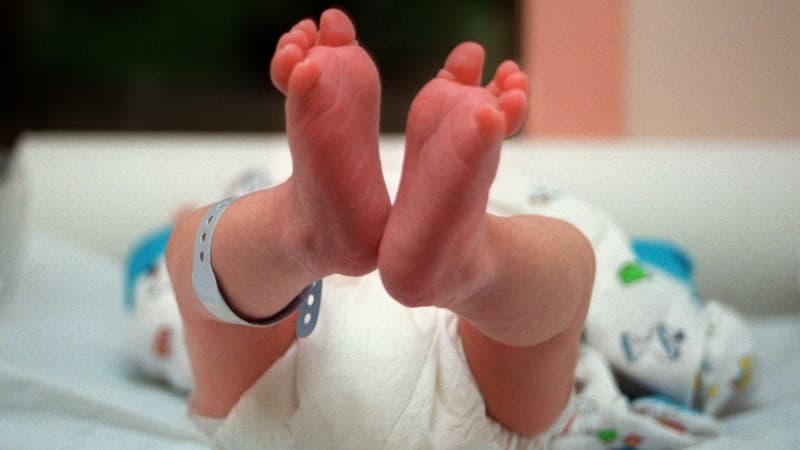“Our France will be stronger thanks to the revival of its birth rate.” While the INSEE annual demographic report shows a drop in the number of births to a level never reached since the Second World War, Emmanuel Macron revealed his “strategy”.
As a preamble to a press conference organized on Tuesday, January 16, he announced the launch of a “grand plan” to fight the scourge of “infertility”, as well as the creation of a birth permit to pay young parents who They interrupt or reduce their activity to care for their child.
“After the expansion of paternity leave, I deeply believe that the establishment of a new leave for birth would be a useful element in said strategy,” he said.
What is it about?
The birth leave mentioned by the Head of State on Tuesday night had already been announced by the Minister of Solidarity in November. The then-called family leave was intended to offer a new “right” to families hosting a child.
Specifically, it allows parents to reduce or stop working to care for their children while receiving remuneration.
Other than maternity or paternity leave
Birth leave should not be confused with paternity or maternity leave, with which there are several important differences.
Firstly, like current parental leave, birth leave can be activated after maternity or paternity leave and not only after birth.
Unlike paternity and maternity leave to which fathers are obliged to participate (eight weeks for women and four days for men), birth leave will not be mandatory.
Maternity and paternity leave allowances are paid by the primary health insurance fund (CPAM) or by the company (in certain cases of subrogation). While birth leave should give the right, like current parental leave, to a subsidy paid by the Family Allowance Funds (CAF).
What remuneration?
Emmanuel Macron did not mention an amount. But he stated that this new system will be “better paid” than the current parental leave.
Parental leave, which young parents have been able to enjoy today since 1984, “creates a lot of anxiety because it is very scarce and poorly paid,” and thus creates “impossible situations,” he said. In fact, it gives the right, under certain conditions, to compensation: the shared education benefit per child (PreParE*) of a maximum amount of 429 euros.
The government will have several options. You will be able to increase the amount of your remuneration by a few hundred euros compared to parental leave or even double it or more. But you could also choose to set your remuneration at a certain percentage of the beneficiary parent’s salary, up to a certain limit.
Among the options mentioned is that of a remuneration equivalent to 50% of the salary, a government source told us.
How long?
In addition to the increase in remuneration, the reduction in its duration is the main novelty of this system.
Specifically, currently parental leave has an initial duration of one year and can be extended twice, without exceeding the date of the child’s third birthday, according to the place of the Ministry of Labor. Therefore, parents can benefit from it for a maximum of three years.
“This (…) will allow both parents to be with their child for six months if they wish,” added the head of state. A significant reduction in the maximum duration of this permit that Emmanuel Macron presents as a response to the distancing of “many women from the labor market.”
Six months per parent or cumulatively?
However, over time vagueness also persists.
We do not know if the six months of leave will be accessible to each parent separately (which would be equivalent to one year of leave in total within the couple) or if the six months represent the maximum cumulative length of leave that the parents will be able to share. among them. .
According to a government source, these six months correspond to the average duration of paternity and maternity leave accumulated with this system.
This means that birth leave would actually amount to four months per spouse. Combined with paternity leave, it would last a maximum of five months for fathers and, combined with maternity leave, seven months for mothers.
What about parental leave?
Finally, Emmanuel Macron indicated that birth leave would replace the current parental leave. This is a novelty, since when the then Minister of Solidarity, Aurore Bergé, announced the creation of this system – which at the time was also called family leave – she indicated that it could coexist with the old parental leave.
The creation of birth leave should therefore put an end to low-paid parental leave, the utilization rate of which is currently very low in France.
A few months ago, Aurore Bergé’s office indicated that only 230,000 people would benefit from it in 2022, compared to more than 500,000 in 2013. A drop in the resource that is accompanied by a very marked gender gap: on average, 14% of women are entitled to receive benefits. of her use it, compared to 0.8% of men.
To be entitled to PreParE, it is necessary to have carried out a professional activity that allows you to validate at least eight quarters of old-age contributions.
-in the last two years if you have just had your first child;
-in the last four years if it is the second child;
-in the last five years from the third child.
Certain periods count as work periods for PreParE: sick leave, paid maternity leave, paid vocational training. Starting with the second child, the periods of compensated unemployment and the periods of receiving PreParE are also counted.
Source: BFM TV


